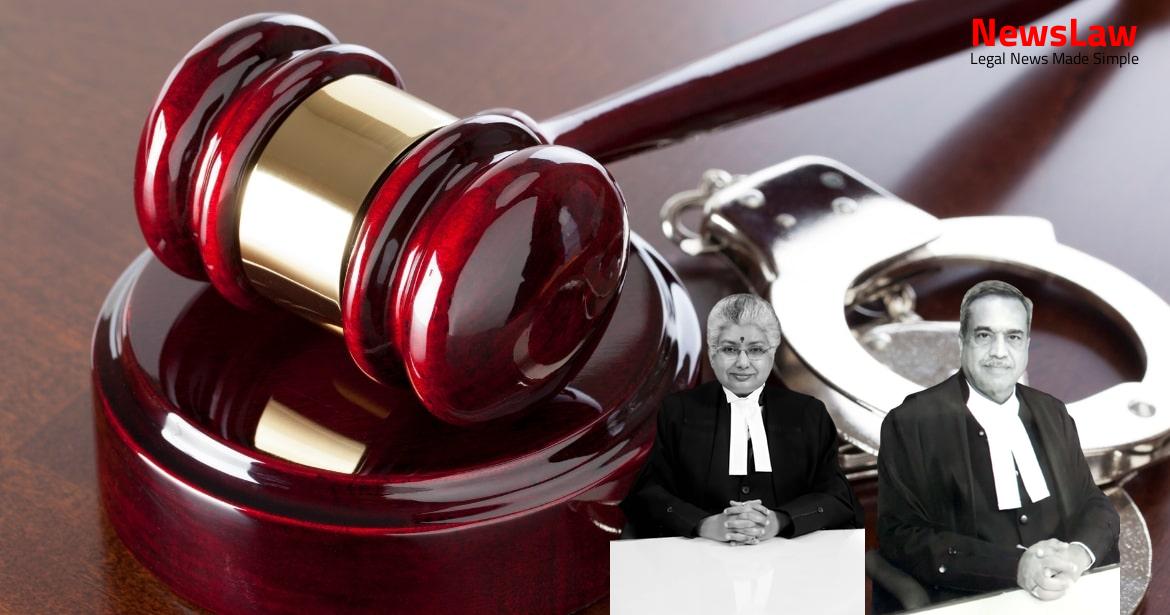Explore the in-depth legal analysis of pledge rights under the Depositories Act, emphasizing the court’s interpretation and application of the law. The framework for dematerialized securities and the enforceability of pledges under the Act play a vital role in ensuring transparency and security in the securities market. This blog sheds light on the nuances of pledge rights as governed by the Depositories Act, providing a comprehensive understanding of the legal framework in play.
Facts
- On 16 January 2018, PIFSL wrote to the Depository Participant regarding the unpaid debt.
- PIFSL invoked its rights as per Clause 6.1 of the Pledge Deed.
Also Read: Analysis of Bail Conditions in Criminal Appeal No. INSC 48/2024
Issue
- The primary legal issue in this appeal is whether the Depositories Act, 1996 along with Regulation 58 of the SEBI (Depositories and Participants) Regulations, 1996 overrides the provisions related to contracts of pledge under the Indian Contract Act, 1872 and common law in India.
Also Read: Conviction Upheld for Murder and Concealment of Body
Analysis
- The Depositories Act and the 1996 Regulations provide a framework for the dematerialization and transfer of securities to enhance transparency and certainty in the securities market.
- The procedure for creating a pledge of dematerialized securities is regulated by the Depositories Act and the 1996 Regulations.
- In case of default by the pledgor/pawnor, the pledgee/pawnee has the right to enforce the pledge through the Depositories Act and Regulations.
- The distinction between a pledge and a mortgage of movable property lies in the nature of rights acquired by the pledgee/mortgagee.
- The rights and obligations agreed upon in a pledge deed cannot override the provisions of the Contract Act relating to pledges.
- The concept of ‘beneficial owner’ under the Depositories Act is crucial for carrying out transactions involving dematerialized securities.
- The creation and transfer of pledges must comply with the provisions of the Depositories Act and the 1996 Regulations.
- The prescription in the Depositories Act and Regulations ensures the security and efficiency of transactions involving dematerialized securities.
- Violation of the regulations may lead to penalties and legal consequences.
- The contractual terms between the pawnee and pawnor must align with the legal provisions governing pledges.
- The Depositories Act and the Contract Act must be interpreted harmoniously to uphold the rights and obligations of the parties involved in a pledge.
- Pledge where pawnor has only limited interest is valid to the extent of that interest.
- The Pledgor waives any right under the Depositories Act inconsistent with the pledge of Pledged Shares.
- Perpetual injunction may be granted when the defendant invades the plaintiff’s property rights.
- Breach of contract to transfer movable property can be relieved unless certain conditions apply.
- Regulations provide for creating a pledge or hypothecation in respect of a security owned by a beneficial owner.
- The process of creating a valid pledge requires delivery of possession of goods by the pawnor to the pawnee.
- Pawnee’s rights in case of default by pawnor include bringing a suit, retaining the goods pledged, or selling them.
- Depositories Act permits pledge or hypothecation of securities held by a depository with certain regulations in place.
- The pawnor has the right to redeem the pawned goods until the ‘actual sale’.
- The right of redemption under Section 177 of the Contract Act continues even after the pawnee has been registered as the ‘beneficial owner’.
- The pawnee cannot sell the pledged goods to himself; such a sale is considered a case of conversion and not an ‘actual sale’.
- After the goods are sold to a third party, the pledge ends.
- The pawnee has a conditional general property interest in the pledge, subject to the condition that he can pass on that general property if the pledge is brought to sale in accordance with the law.
- Section 176 gives the pawnee the option to retain or sell the pawned goods for debt recovery.
- If the pawnor fails to pay the debt, the pawnee can sue the pawnor for the debt while holding the goods pledged.
- The pawnor retains the right to redeem the pledged goods even after the stipulated time for payment and before the sale.
- Formalities and requirements for making contracts have generally been held to be mandatory by the courts.
- The notice that the pawnee must provide to the pawnor before selling the pledged goods is a special legal protection given to the pawnor.
- The pawnee’s right to transfer the general property rights in the pawned goods exists if the pledge remains unredeemed.
- The distinction between a standard lien and a contract of pledge is crucial in determining the rights and obligations of the parties involved.
- MHPL is not a secured creditor of NNPIL for the value of the 31,80,678 shares.
- The shares held by MHPL do not constitute security for the debt owed by NNPIL.
- MHPL’s shares do not provide any preferential rights or security interest in the assets of NNPIL.
- The nature of the shares held by MHPL does not give them secured creditor status in relation to NNPIL.
Also Read: 1991 Decree Invalid: No Determination of Rights in Property Dispute
Decision
- Insolvency proceedings against NNPIL will proceed accordingly
- PIFSL has rightfully made a claim as a financial creditor of the Corporate Debtor without including the value of 31,80,678 shares of NEVPL in its claim petition
- The appeal is allowed without any order as to costs
- The impugned order by the Appellate Authority upholding the orders of the Adjudicating Authority is set aside
Case Title: PTC INDIA FINANCIAL SERVICES LTD. Vs. MR. VENKATESHWARLU KARI (2022 INSC 562)
Case Number: C.A. No.-005443 / 2019



